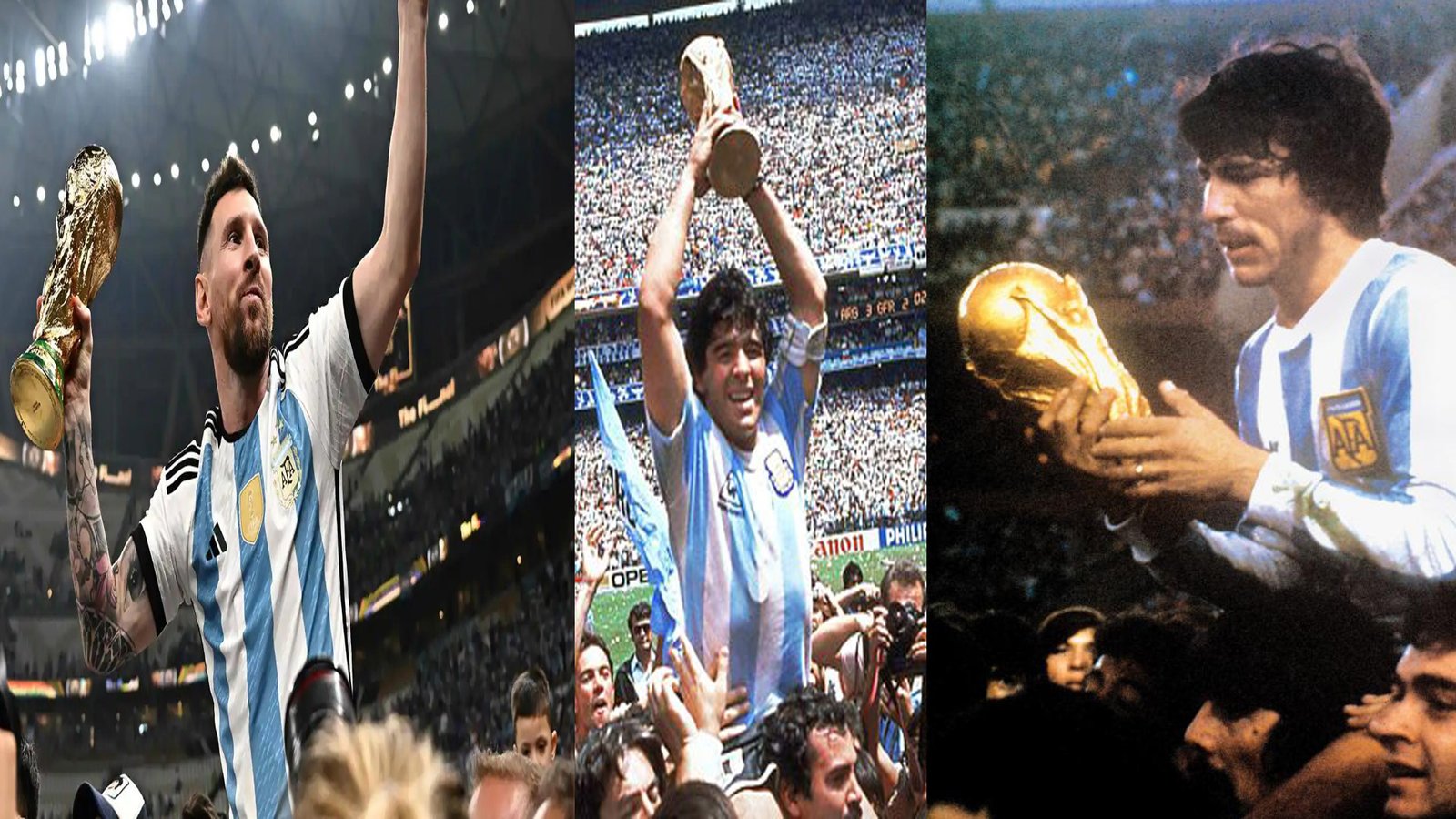
Argentina’s illustrious journey in the FIFA World Cup stands as a testament to their prowess on the international stage. With three championship titles under their belt, earned in 1978, 1986, and 2022, Argentina has etched its name among the tournament’s most successful teams.
Moreover, the nation has secured runner-up positions thrice, in 1930, 1990, and 2014, showcasing their consistency and competitive spirit. Argentina has won 47 of 88 games in 18 World Cup competitions. The team was second only to Brazil and Germany in terms of appearances at the World Cup, having participated in all but four of them.
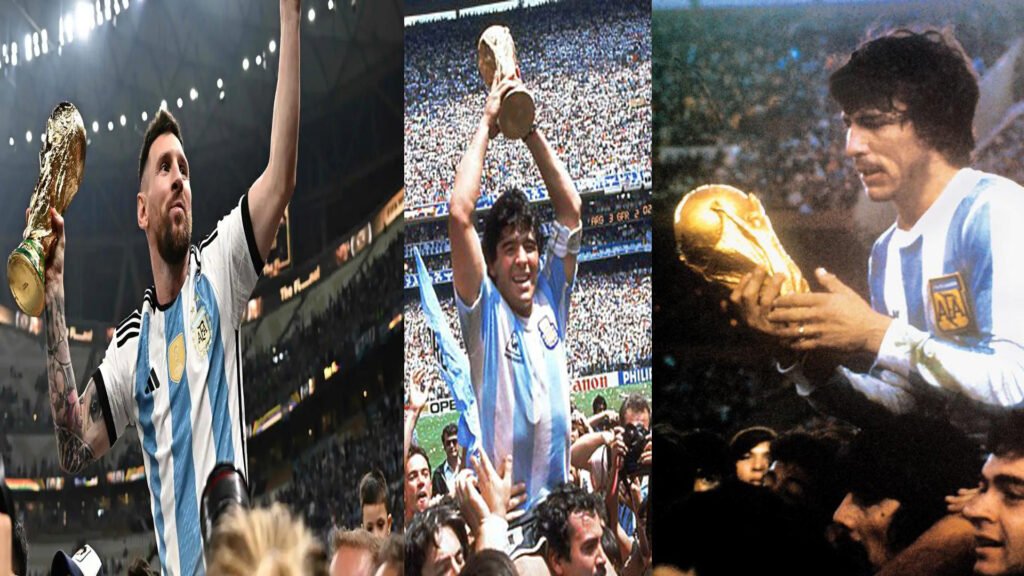
The 1978 FIFA World Cup Final
The winner of the 1978 FIFA World Cup was decided in the tournament’s final. The Estadio Monumental in Buenos Aires, the capital city of Argentina, served as the venue for the encounter between the hosts, Argentina, and the Netherlands. This was the largest stadium utilized in the tournament.
The Argentine team prevailed 3-1 in extra time to win the match. Mario Kempes was chosen man of the match. Kempes finished as the tournament’s leading scorer.
After losing to West Germany in 1974, the Netherlands lost their second consecutive World Cup final, both times against the host country. The host country also won this World Cup competition for the second time in a row. Between 1950 and 2002, it was the only World Cup final in which neither Brazil nor Germany competed.

Match Highlights
Tension erupted in front of an antagonistic Buenos Aires audience at the beginning of the final due to accusations by the Dutch that the Argentines were using stalling tactics to delay the contest. After whipping the audience into a frenzy, the host squad eventually emerged five minutes late.
The Dutchman threatened to leave the field after the Argentines questioned the legitimacy of a plaster cast on Rene van de Kerkhof’s wrist, even though he had worn it in previous games without incident. The Italian referee, Sergio Gonella, upheld the complaints and made Van de Kerkhof put on additional bandage. The Netherlands squad retaliated by declining to go to the post-match ceremonies.
During the actual game, there were several fouls and an antagonistic atmosphere. Confetti and ticker tape from the stadium found their way onto the field. The game’s first goal was scored by Mario Kempes, who slotted a shot under Jan Jongbloed from 12 yards out. Rob Rensenbrink nearly equalized for the Netherlands after Rene van de Kerkhof headed a pass, but Ubaldo Fillol’s boot blocked the shot. Eventually, Dick Nanninga, a replacement, headed home Rene van de Kerkhof’s cross to equalize for the Dutch.
Rensenbrink pounced onto a long ball and attempted to put a shot past Fillol in the last minutes of play, giving the Dutch the lead, but the shot bounced against the post and extra time was added.
In the 105th minute, Kempes scored the game-winning goal after dodging two sliding challenges by Dutch players and racing into the box. Jongbloed stopped Kempes’ shot, so Kempes leaped to escape him, but before Kempes could even land, the ball bounced off of him and struck him twice—in the knee and the foot—before hitting Jongbloed in the head. Two Dutch defenders raced to remove the ball from the open goal as the ball rebounded high in the air.
The official goal was given to Kempes, but the behind-the-goal footage suggested that Wim Suurbier may have touched the ball first.
In the second half of extra time, Daniel Bertoni completed the victory following a lengthy run into the box by Kempes, who was fouled by a Dutch defender. Before finally settling at Bertoni’s feet, the ball bounced around a few times and he had a clear view of the goal from within the box. Because Jongbloed was out of position due to not seeing the ricochet, Bertoni was able to take his place with ease.
Also Read: Brazil Dominates Men’s FIFA World Cup Wins with 5 Titles
The 1986 Final
The Mexico-hosted 1986 FIFA World Cup final was the 1986 FIFA World Cup final. Attendance for the June 29, 1986, game at the Estadio Azteca in Mexico City was 114,600. West Germany and Argentina both contested it. In regulation time, Argentina prevailed 3–2.

Match Highlights
After German goalkeeper Harald Schumacher mishandled a right-wing free-kick, Argentina’s Jose Luis Brown scored with a header in the 23rd minute, and the score remained at 1-0 at the break. Jorge Valdano cut in from the left and beat the advancing goalie with a low side foot shot to extend Argentina’s lead 11 minutes into the second half. In the 74th minute, Karl-Heinz Rummenigge scored his first goal of the competition, bringing West Germany back into the lead.
Rudi Voller’s header from close range in the 81st minute then gave West Germany an equalizer. Even though Lothar Matthaus had Diego Maradona covered a lot during the match, in the 84th minute, Maradona’s pass to Jorge Burruchaga gave Argentina a 3-2 lead when the latter slid the ball past the charging goalkeeper from the right and into the corner of the net.
This encounter resulted in six yellow cards, a record until the 2010 FIFA World Cup Final. Due to Argentine players’ timewasting, two of them were issued. Argentina, who had won the 1978 World Cup on home soil, celebrated their second World Cup title in three seasons as the clock ran out.
Many people believe that Argentina’s victory in the second World Cup was their most significant as a team. Both teams faced off in the 1990 World Cup final, with West Germany emerging victorious, four years later. This was the first time two World Cup finalists had faced off twice; Brazil and Italy, the winners of the 1970 and 1994 World Cups, later shared this distinction. For the third time ever, Argentina and Germany faced off in the 2014 final.
The 1966 World Cup final loss gave German manager Franz Beckenbauer the unique distinction of being the manager who had also lost a World Cup as a player. Both as a player (in 1974) and as manager, he won the World Cup in 1990, leading Germany to victory.
The 2022 FIFA World Cup Final
The final game of the 22nd iteration of FIFA’s competition for men’s national football teams took place in the 2022 FIFA World Cup. The match between Argentina and the reigning champions, France, took place on December 18, 2022, the Qatari National Day, at Lusail Stadium in Lusail, Qatar. The final was one of the most viewed sporting events in history on television, with a record 1.5 billion viewers.
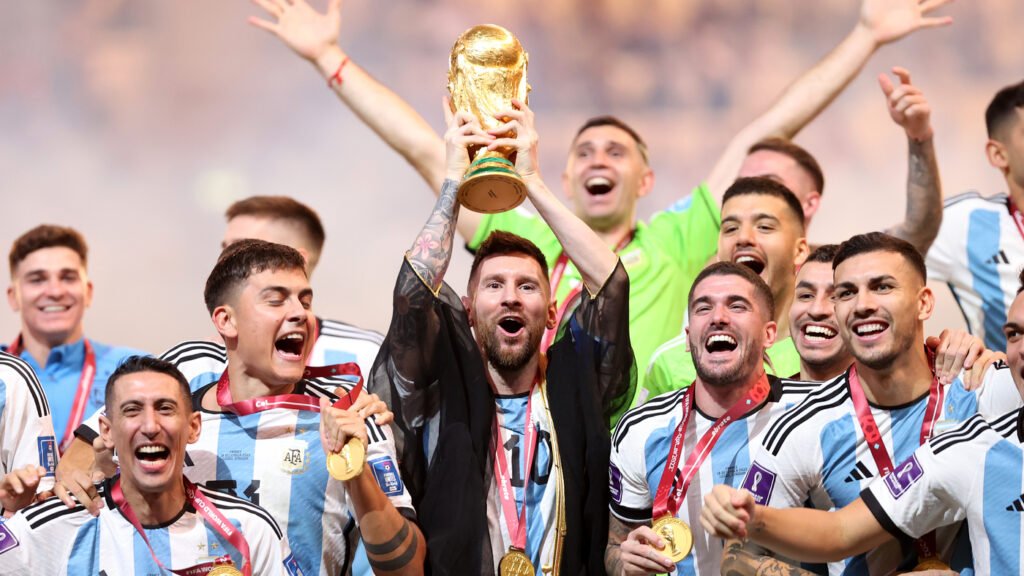
Match Highlights
In front of 88,966 spectators, France Kicked of the encounter. In the 23rd minute, Ousmane Dembele fouled Angel Di Maria in the penalty box as Di Maria cut in from the left, winning Argentina a penalty. The penalty was scored by Lionel Messi with a low shot into the right corner.
After receiving a pass from Alexis Mac Allister on the right, Di Maria completed a sweeping counterattack by Argentina in the 36th minute to make the score 2-0. He shot with his left foot over the goalkeeper and into the right corner of the net. France trailed 0-2 at halftime and made two early replacements toward the conclusion of the first half.
Argentina was winning the match because they were in control of the ball and defensively stopping France. France didn’t try to score until the 80th minute, when Randal Kolo Muani was hauled down in the penalty area by Nicolas Otamendi, and then France was awarded a penalty.
Despite Emiliano Martinez putting a hand on the ball, Kylian Mbappe struck the penalty kick low to the left corner to make the score 2–1. A quick counterattack that culminated in Mbappe’s first-time volleying of a lofted pass from Marcus Thuram with his right foot as he was falling to the ground to the bottom-right corner of the net to make the score 2–2 was started 97 seconds later when Kingsley Coman tackled Messi. Martinez again tried to parry the ball but was unable to keep it out.
Thuram was cautioned for diving five minutes after Mbappe’s equalizer, as he tripped slightly on Enzo Fernandez’s leg and went down in the penalty box. Near the conclusion of additional time, both teams came dangerously close to winning when Adrien Rabiot hit a rapid shot inside the box, forcing Emiliano Martinez to make a clumsy stop. Three minutes later, Messi had a strong shot parried over the bar by Hugo Lloris. The game went into extra time because there was a tie score at the end of regular.
Also Read: Lionel Messi’s Potential Participation in Paris Olympics
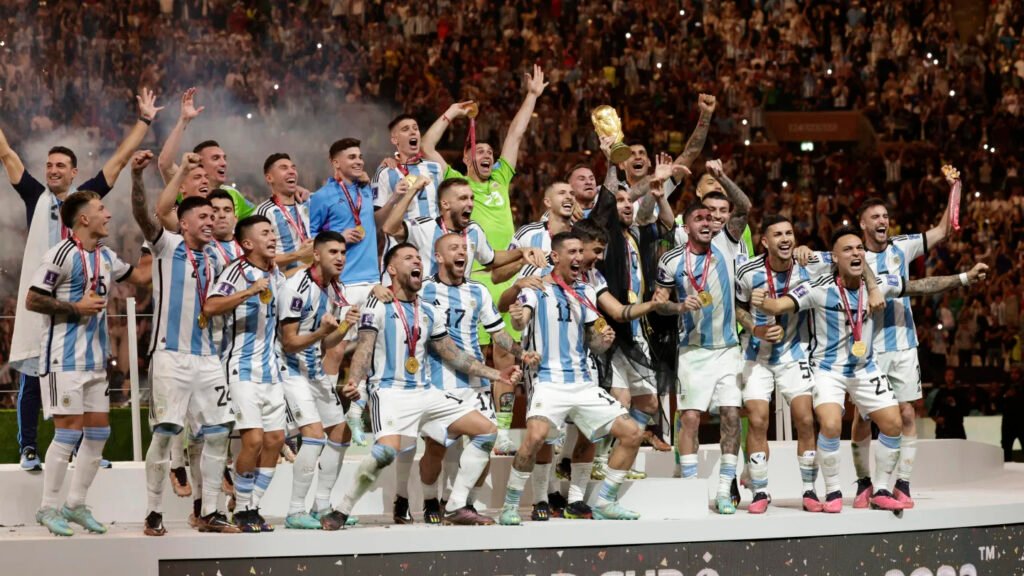
Extra Time Drama
Messi scored again for Argentina in the second extra time period, this time from close range after Lloris had parried a shot from Lautaro Martínez on the right, seemingly the winning goal, after the first half of extra time ended goalless, marked by two one-on-one opportunities missed by Lautaro Martinez. However, in the 118th minute, Mbappe’s strike struck Gonzalo Montiel’s arm, giving France a second penalty.
Mbappe became the second player after Geoff Hurst for England in 1966 to score a hat-trick in a men’s World Cup final with his third goal, a penalty kick to the left that sent Martinez the wrong way. With 15 seconds remaining in extra time in the 123rd minute, a wayward ball found its way to an unmarked Kolo Muani at the edge of the box. Muani fired low to the right of the goal, but Emiliano Martínez stopped it with his left shin.
After Argentina instantly counterattacked, Lautaro Martinez headed a 10-yard attempt wide of the goal. After Mbappe dribbled in the penalty area and passed three Argentina defenders, France launched one final attack, but Paulo Dybala promptly cleared the ball off the field. The game proceeded to a penalty shoot-out when the referee blew the last whistle of extra time.
Penalty Shoot-out
This was the third time that penalties will be used to decide a World Cup final. With two goals apiece, Mbappe and Messi got the penalty shootout underway at 1-0. Martinez, the Argentine goalie, would stick to his psychological strategies and gamesmanship from the penalty shootouts versus the Netherlands in the quarterfinal. Martínez saved Kingsley Coman’s effort, which was low to Martinez’s right, after Coman’s attempt was delayed by an argument with the referee.
Argentina led 2-1 after Dybala scored a strike up the middle of the net. Martinez picked up the ball and flung it to the edge of the box before Aurelien Tchouameni’s shot. Then, Tchouameni missed the left goal with his shot. Then, at 3-1, Leandro Paredes scored to put France in danger of losing. By scoring his chance and cutting the lead to3-2, Kolo Muani kept France alive. Martinez tried to apply his psychological warfare on Kolo Muani but was instead given a yellow card.
Then, Montiel had the opportunity to atone for his tardy handball by helping Argentina win the title. Argentina won the match 4-0 thanks to a penalty shootout, and Montiel’s low shot to the left gave them their first World Cup triumph since 1986.
Stats After 2022 Final
Argentina’s triumph over France and Uruguay marked their third FIFA World Cup title, trailing only Brazil’s five and Italy and Germany’s four. They became the first South American team to win the World Cup since Brazil in 2002, as well as the first non-European team and the current Copa America champions.
As the player of the game, Messi earned his second Golden Ball title, following his 2014 victory as the tournament’s best player. This makes him the first, and so far only, player to win the honor twice. With seven goals, he had the second-most goals in the competition and won the Silver Boot award as well. Messi overtook Lothar Matthaus as the player with the most World Cup appearances after making his 26th appearance in the championship match.

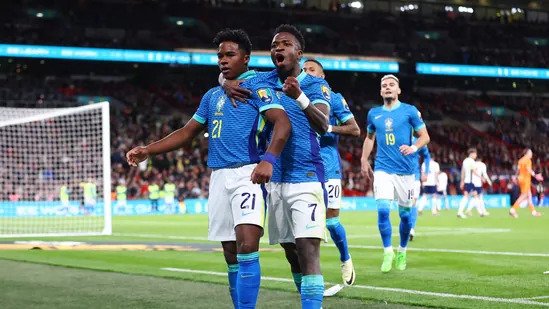
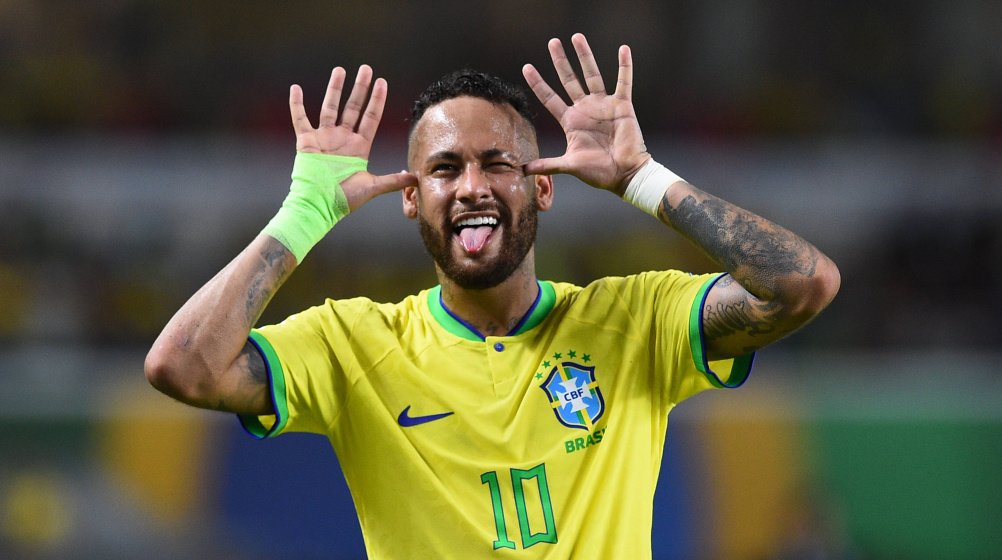

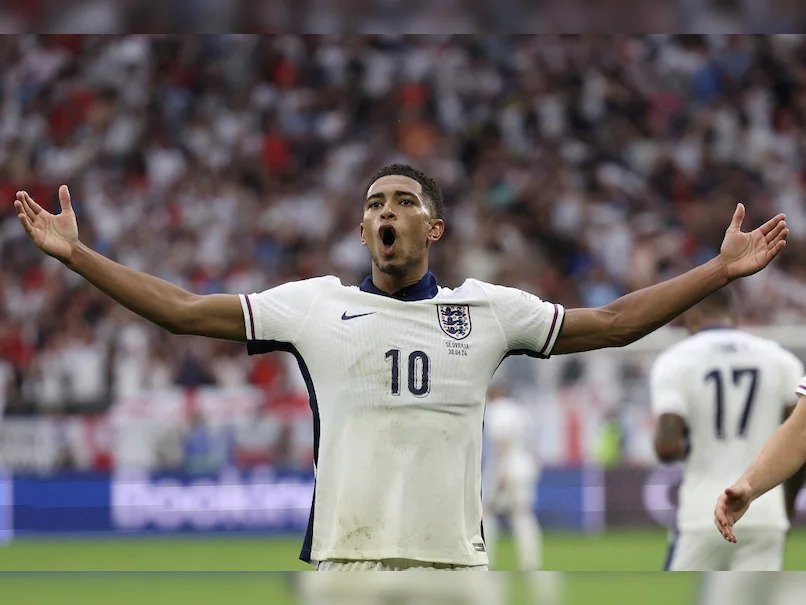

Great Article